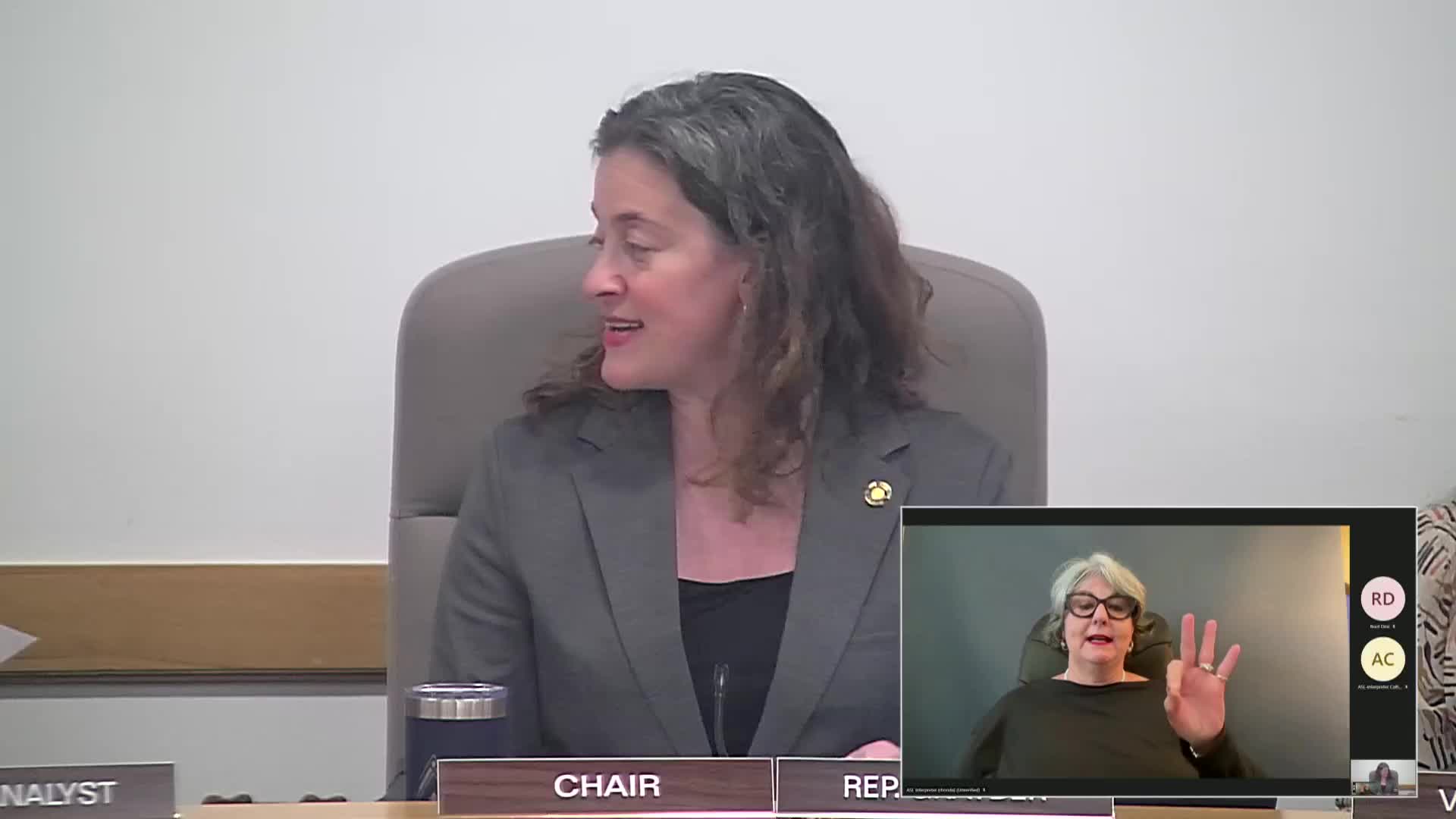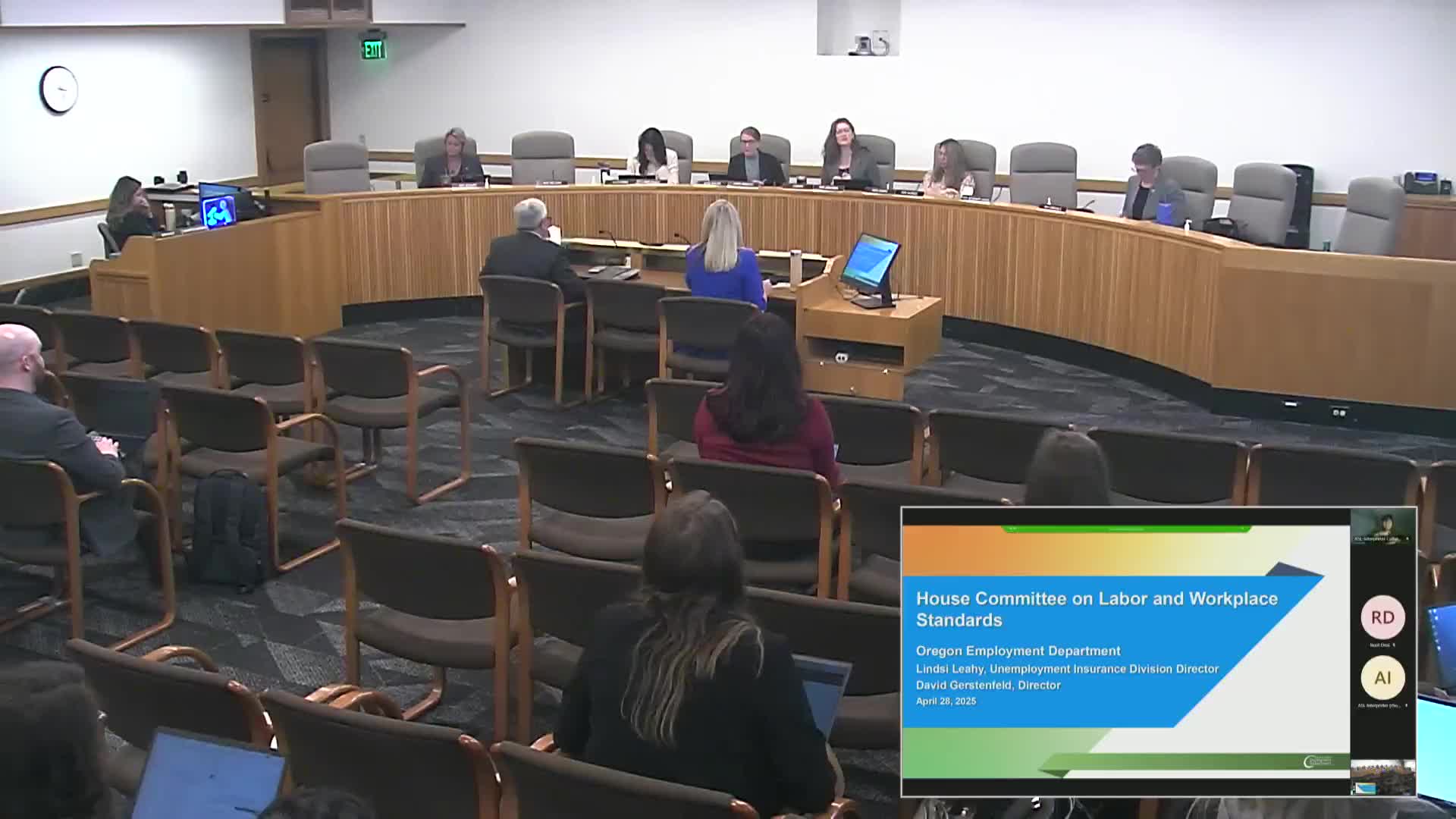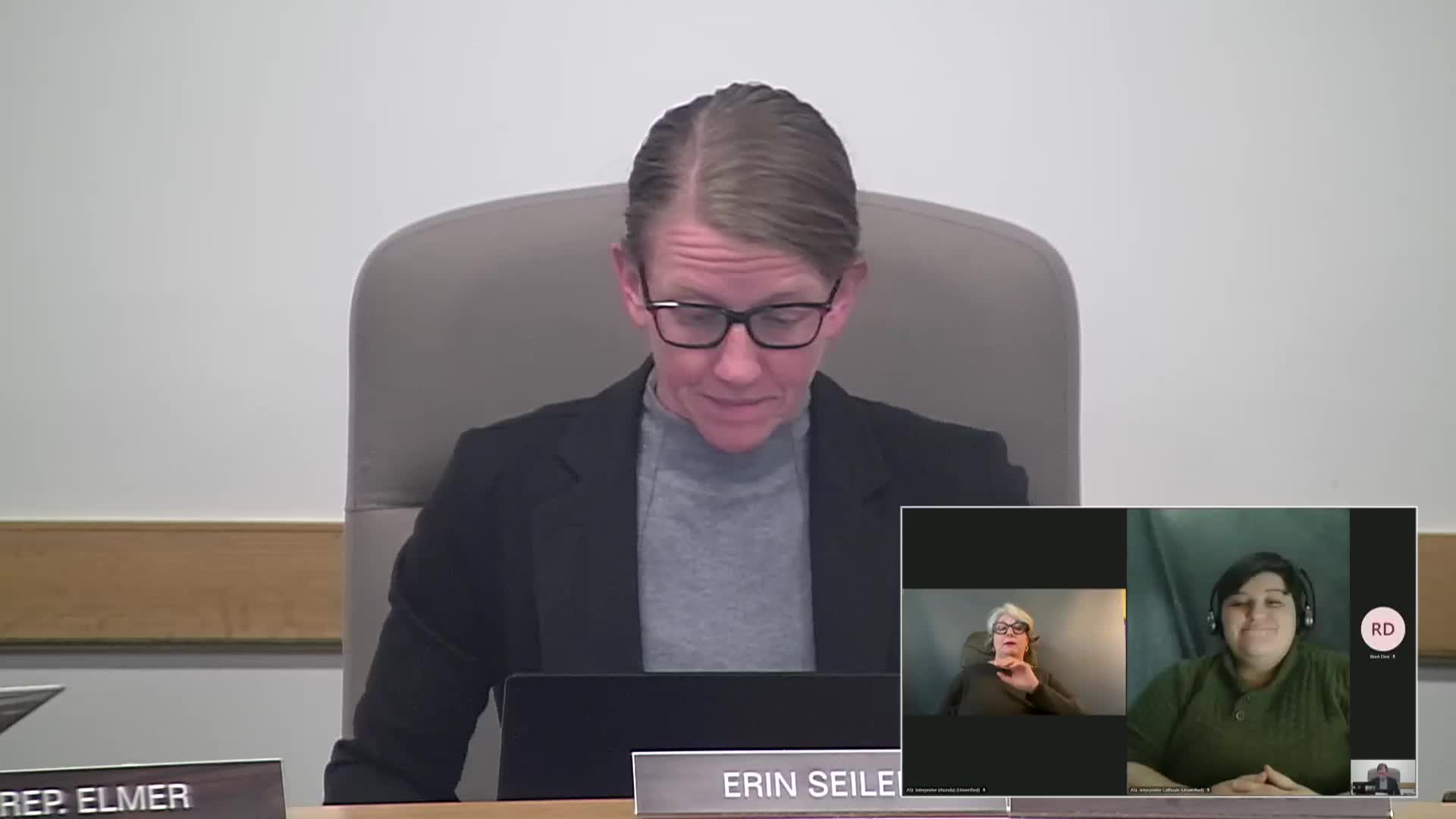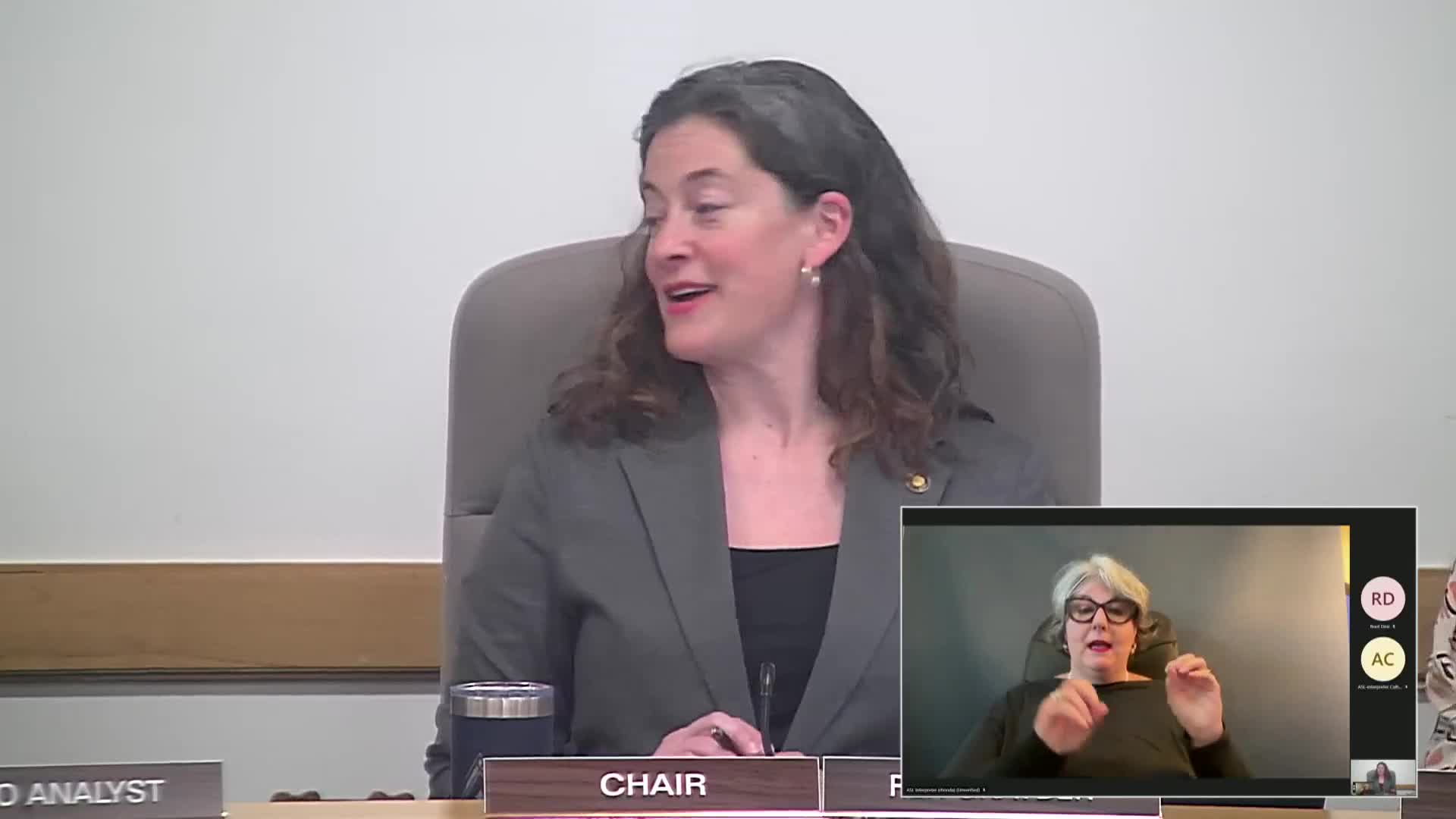Article not found
This article is no longer available. But don't worry—we've gathered other articles that discuss the same topic.

Committee advances three paid‑leave technical bills to the House floor

Employment Department briefs committee on SB 916 A: unemployment benefits for striking workers, DOL conformity, and estimated fiscal impact

Bill would speed contested‑case referrals, adjust disability rules for police and firefighters in PERS

